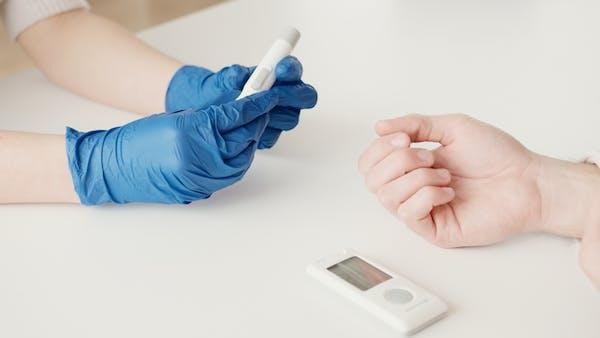Type 2 diabetes is a chronic metabolic disorder that occurs when the body becomes resistant to insulin, a hormone that regulates blood sugar levels. Unlike type 1 diabetes, which is an autoimmune disease that destroys insulin-producing cells in the pancreas, type 2 diabetes is often the result of lifestyle and environmental factors. In this article, we'll explore the causes and risk factors associated with type 2 diabetes as suggested by diabetologist in Noida.
Obesity
Obesity is the most significant risk factor for type 2 diabetes. Being overweight or obese increases the body's resistance to insulin, making it harder for the body to regulate blood sugar levels. The more excess weight a person carries, the higher their risk of developing type 2 diabetes.
Sedentary Lifestyle
Physical inactivity is another significant risk factor for type 2 diabetes. When people don't exercise regularly, their bodies become less efficient at using insulin, which can lead to insulin resistance and ultimately, type 2 diabetes. Regular exercise, on the other hand, can help improve insulin sensitivity and lower blood sugar levels.
Family History
A family history of type 2 diabetes can increase a person's risk of developing the disease. If one or more close relatives have type 2 diabetes, a person's risk is significantly higher than if there is no family history of the disease. This suggests that there may be a genetic component to type 2 diabetes.
Age
The risk of developing type 2 diabetes increases with age. While the disease can affect people of all ages, it is most commonly diagnosed in people over the age of 45. This is likely due to a combination of factors, including changes in hormone levels, decreased muscle mass, and increased insulin resistance with age.
Gestational Diabetes
Women who have had gestational diabetes during pregnancy are at an increased risk of developing type 2 diabetes later in life. Gestational diabetes occurs when a woman's blood sugar levels are higher than normal during pregnancy. It is thought that the hormonal changes that occur during pregnancy may contribute to the development of insulin resistance.
Polycystic Ovary Syndrome (PCOS)
PCOS is a hormonal disorder that affects women of reproductive age. Women with PCOS often have high levels of insulin in their blood, which can lead to insulin resistance and an increased risk of type 2 diabetes. PCOS is also associated with obesity and physical inactivity, which further increase the risk of developing type 2 diabetes.
Race and Ethnicity
Type 2 diabetes is more common among certain racial and ethnic groups. African Americans, Hispanic/Latinx Americans, Native Americans, and Asian Americans are all at a higher risk of developing type 2 diabetes than non-Hispanic white Americans. This may be due to a combination of genetic, lifestyle, and environmental factors.
High Blood Pressure
High blood pressure, or hypertension, is a risk factor for type 2 diabetes. When blood pressure is consistently high, it can damage blood vessels and organs, including the pancreas. This can impair insulin production and increase the risk of insulin resistance and type 2 diabetes.
Sleep Disorders
Sleep disorders, such as sleep apnea, have been linked to an increased risk of type 2 diabetes. Sleep apnea is a condition in which a person's breathing is interrupted during sleep, causing them to wake up briefly. This can lead to poor sleep quality and daytime fatigue, which can increase the risk of obesity and physical inactivity, both of which are risk factors for type 2 diabetes.

